16 students complete NSYSU’s first water lifeguard course
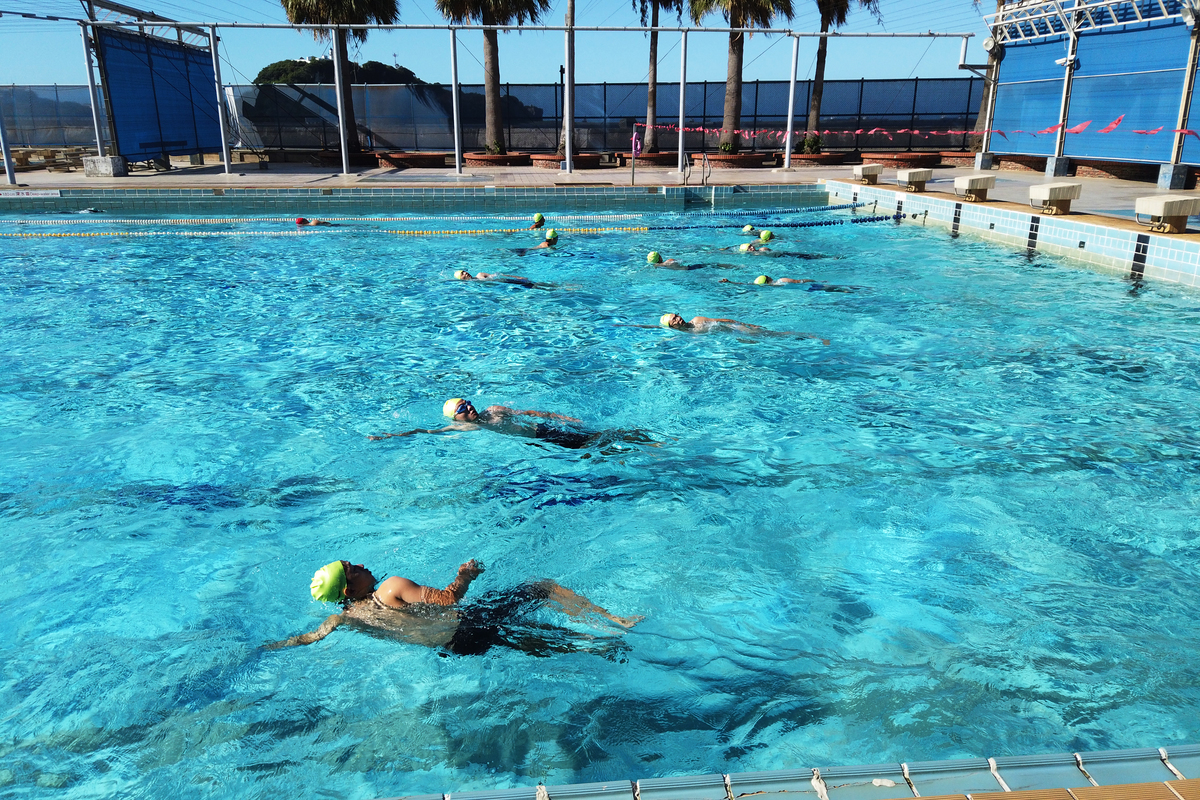
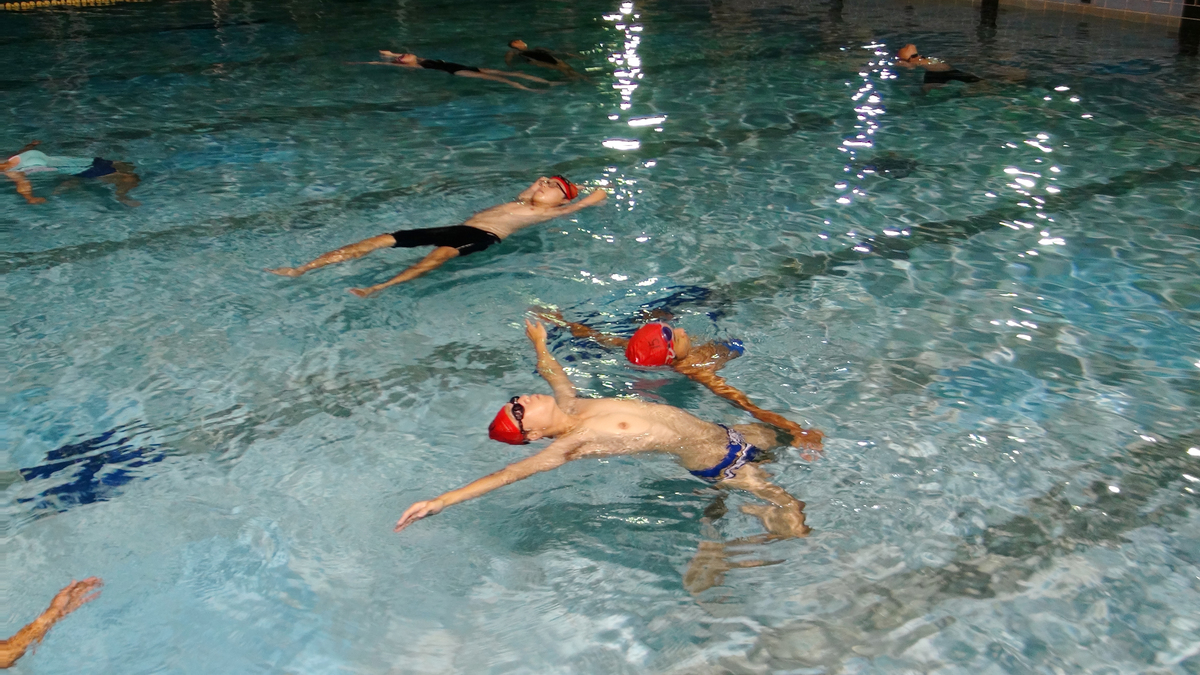
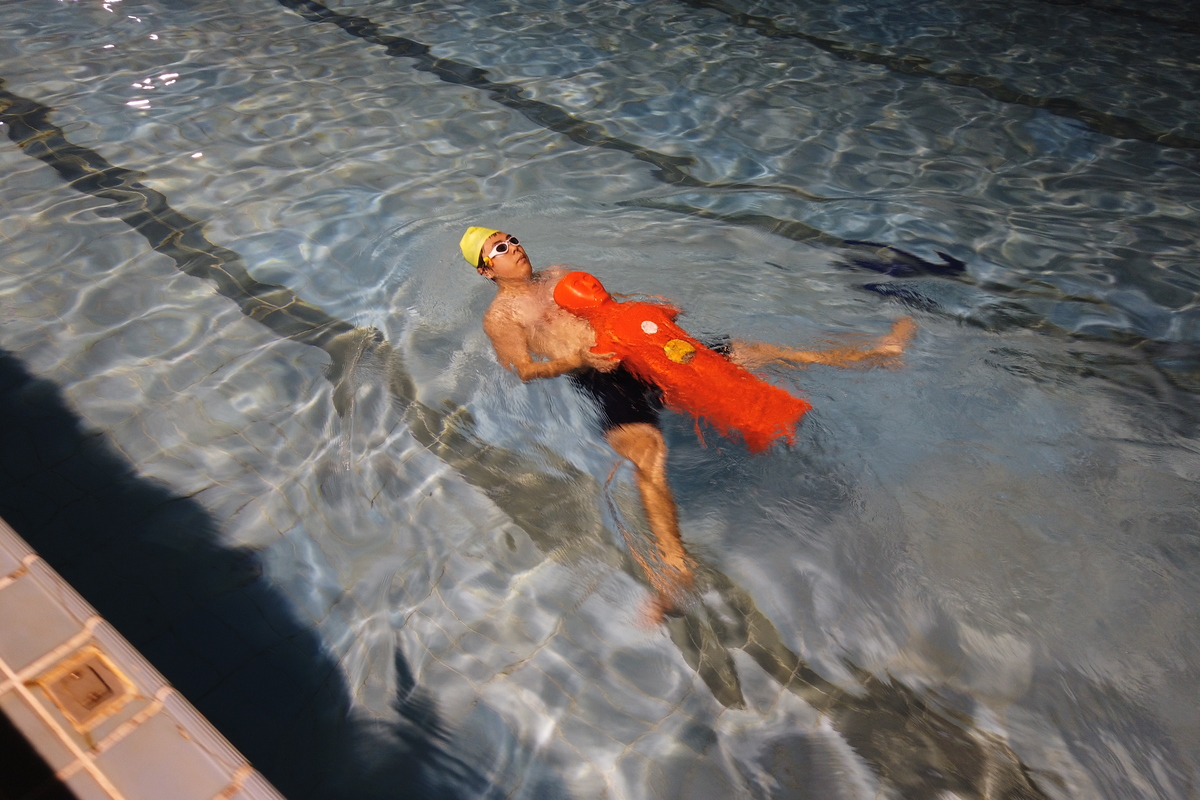
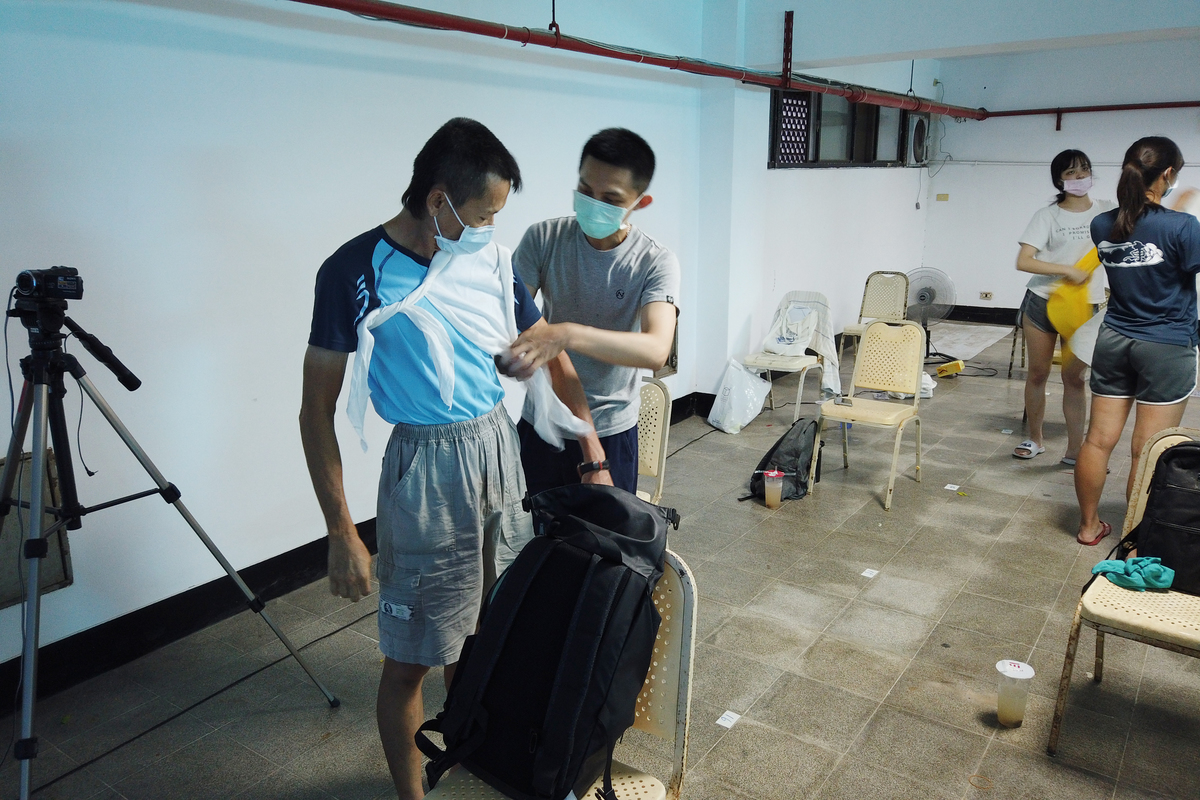
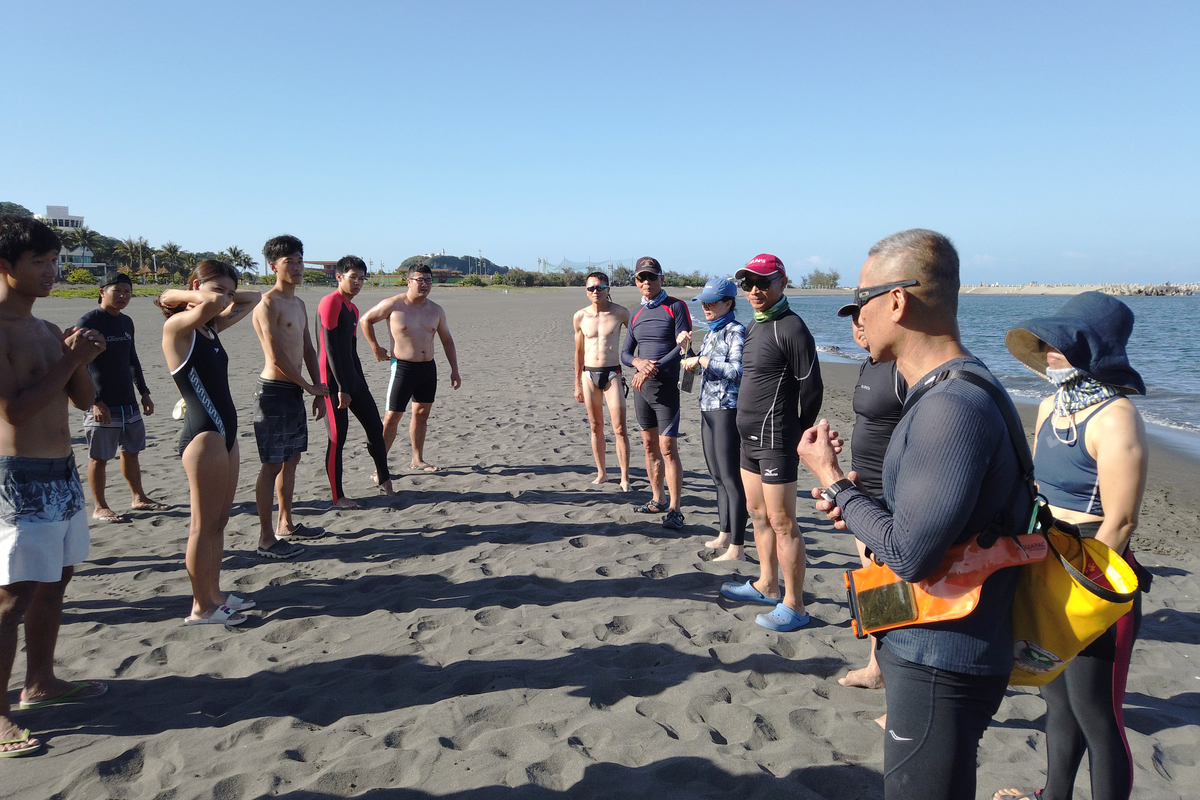
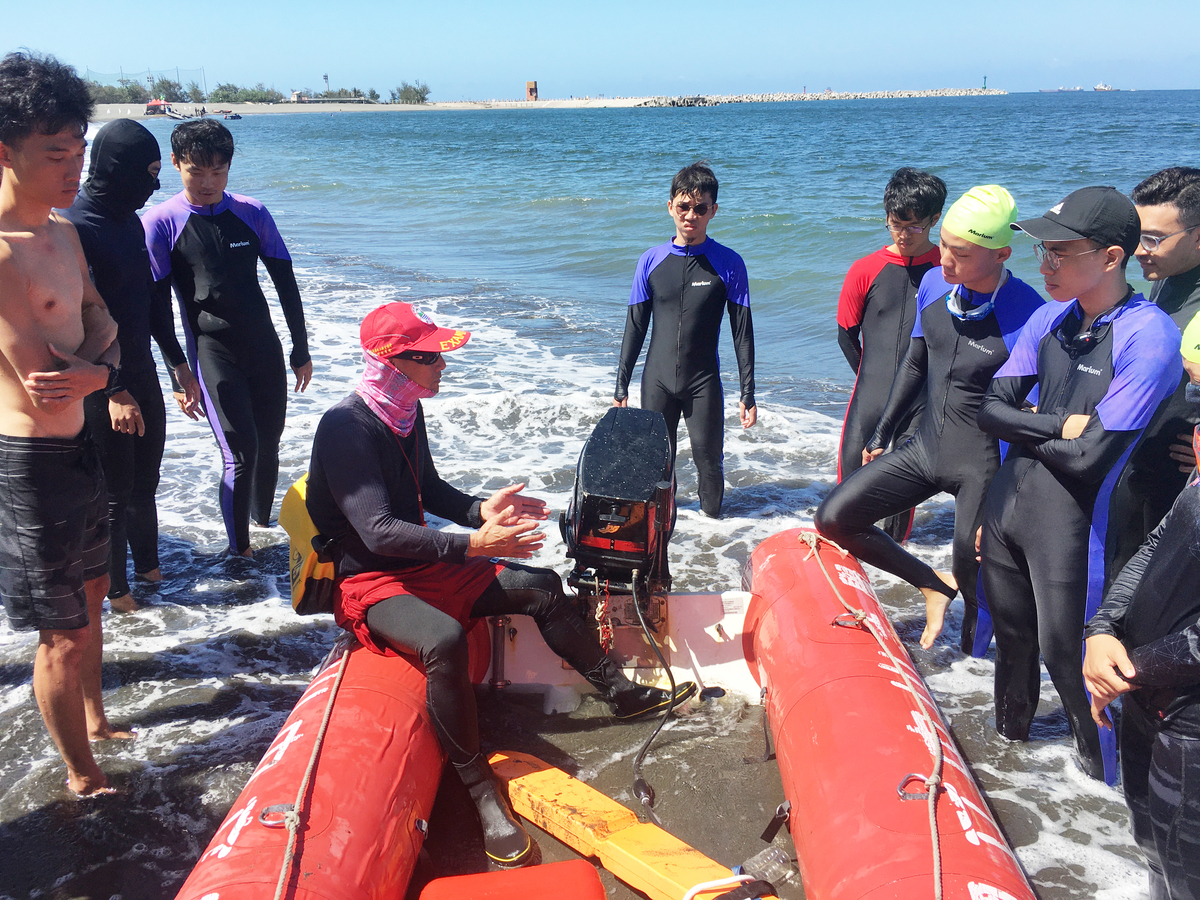
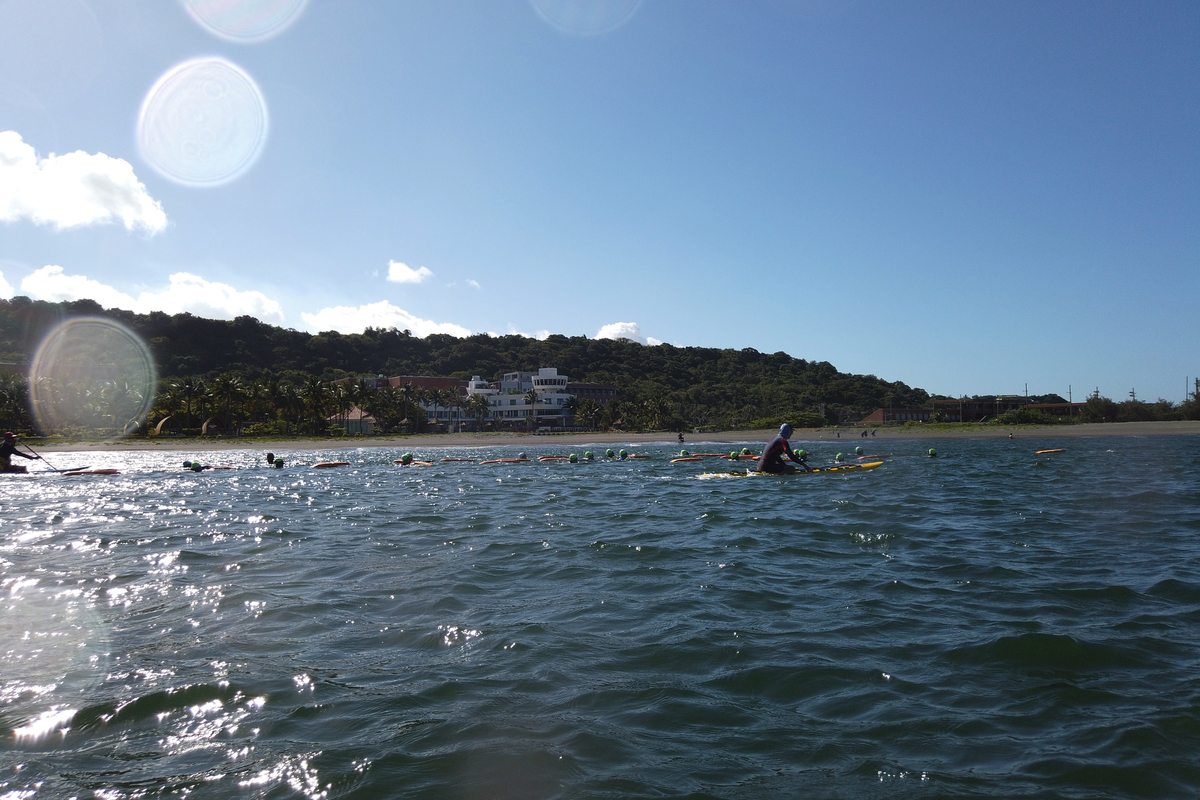
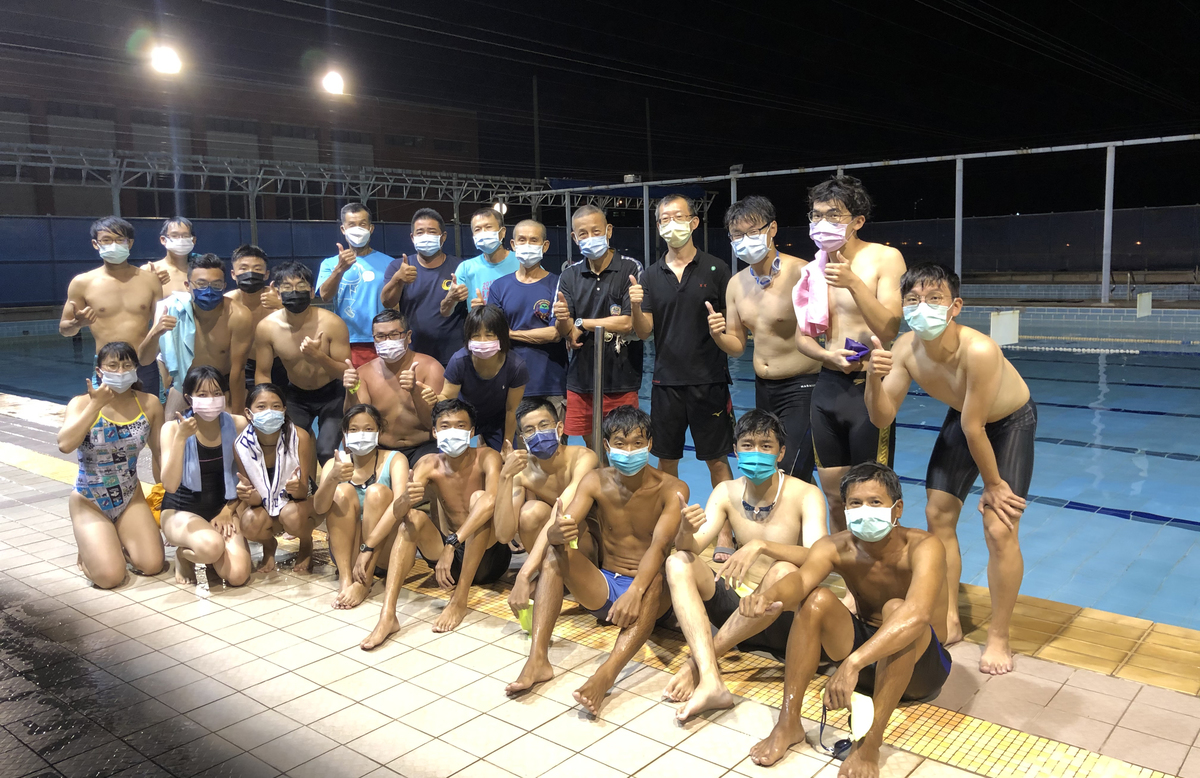
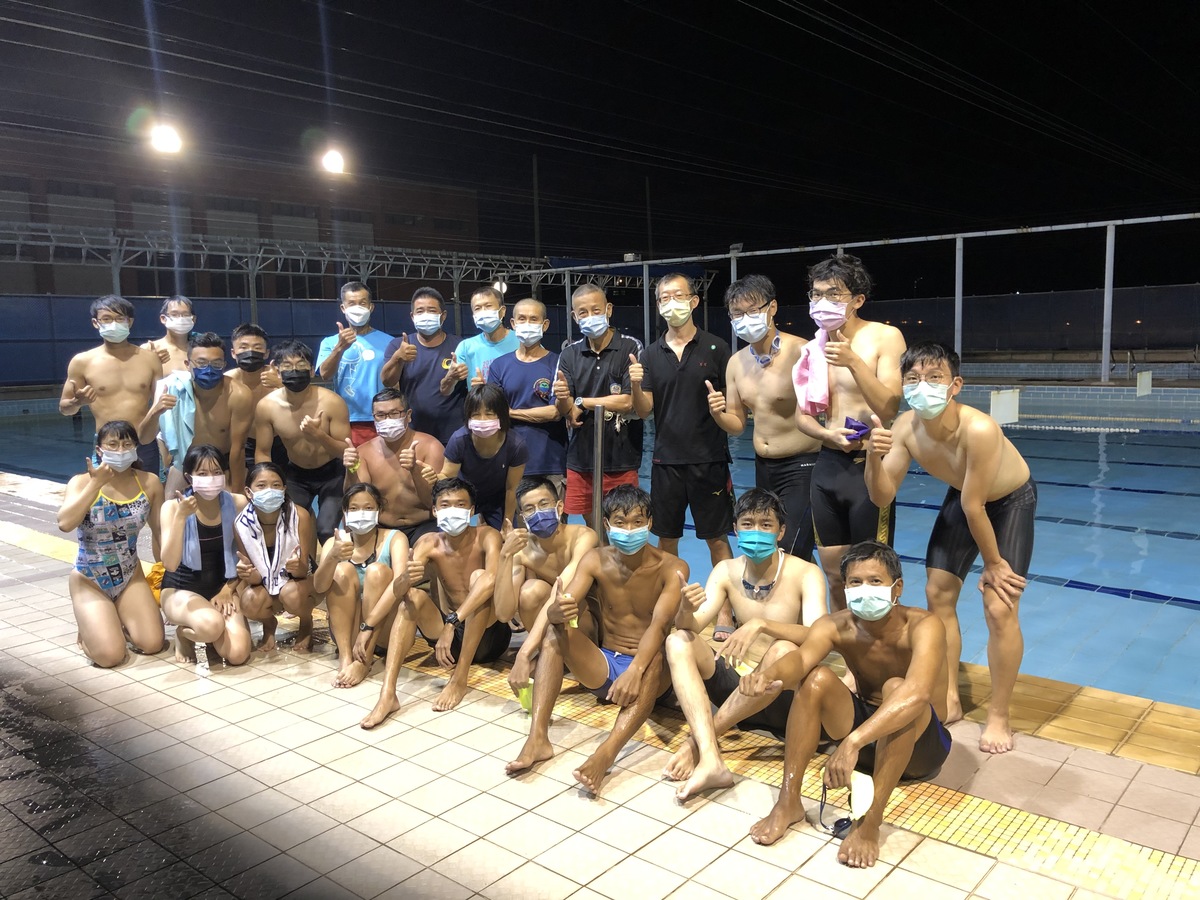
2021-07-05
(Provided by Si Wan College) Taiwan is an island surrounded by water. Accidents happen frequently in the summer, when many people engage in water sports and activities, which makes lifeguards the frontline workers in water areas. This year, the Center for Physical and Health Education at National Sun Yat-sen University for the first time launched a water lifeguard course, the only credit course of this kind in Taiwan. NSYSU students do not need to pay extra, and after obtaining the certificate of completion of the training course, they can take the examination of the Ministry of Education to become a certified lifeguard. 16 of the 18 participating students have successfully completed the course and received certificates.
The organizer of the water lifeguard course, Director of NSYSU Center for Physical and Health Education Kai-Yang Lo said that the campus, with its geographical advantage, is fully committed to promoting water sport courses at sea; in addition to basic swimming lessons, there are courses in competitive swimming, diving, windsurfing and beginner-level marine leisure activities. The recently-launched water lifeguard course was not part of any pre-planned event nor was it co-organized with any off-campus organization. The whole course was fully planned by NSYSU, which applied to the Ministry of Education over a year ago to become a training institution. The University has plenty of equipment and an excellent marine environment. The Ministry of Education made a visit to officially approve the establishment of the water lifeguard training course.
The course at NSYSU was led by instructors from the industry, including senior lifeguarding instructors and current active-duty firefighters, said Kai-Yang Lo. Before the course, the students had to pass a basic swimming test and before and after every class, they had to complete the lifesaving medley on a distance of 1600 m. In addition to water lifesaving skills and training at sea, besides basic life-saving techniques, the course also taught students how to perform CPR, basic bandaging, basic injury management, very useful in daily life, not only in water rescue. In the training at sea, trainees were allowed to use their own equipment, including rescue boards, IRBs (inflatable rescue boats), beach buggies for towing equipment, or personal watercraft. At the end of the intensive course, trainees who successfully completed the course received certificates and can now become certified lifeguards if they pass the examination of the Ministry of Education.
Director Lo disclosed that if one wanted to go through lifeguard training and obtain a related certification from a specialized organization, the cost of the course itself, without teaching materials or equipment, would be of NTD 5,000 to 7,000. NSYSU students not only could save the cost of the course, but also use the University’s provided equipment for training at sea. Lo hopes that the students can make a good use of these resources and gain self-rescue and lifeguarding abilities before the fourth year of studies, and in the future, apply these abilities to other water courses and activities. The Center for Physical and Health Education hopes that these swimming and lifeguarding courses can boost students’ confidence when at the sea.
When I first started learning the four life-saving medley, the thought that came to my mind was “I swam for so long that I started doubting life”, said a course student Hsin-Ping Kan of the Department of Foreign Languages and Literature. Later, she gradually grasped the techniques thanks to practicing life-saving medley with 8 groups of trainees and the instructor’s guidance. Student Cheng-Wei Huang recalled that at first, he was deprived of energy and fell asleep right after returning to the dormitory every day, however later on he began to look forward to “learning new abilities every day", such as approaching, defending, untying, and carrying people. Learning and using these techniques gave him a sense of achievement.
One of the trainees, Chen-Feng Liang of the Department of Electrical Engineering said that he was very happy to be able to join the lifeguard course just before graduation thanks to the University’s resources and to learn skills that will serve him for a lifetime, as well as experience training at sea with such equipment as a beach buggy, IRB, and SUP. Although at the beginning the students were unfamiliar with the four styles of the life-saving medley, thanks to the efforts of the instructors and the students, everyone passed the integrated water test, including diving, and training dummies towing at the end of the training. Ching-Wei Lin, student of the Department of Electrical Engineering, said that thanks to the rescue experience of the instructors, he got very valuable professional knowledge on life saving and now knows how to protect himself, his family and friends when having fun out in the water.
(Edited by Public Affairs Division)
(Provided by Si Wan College) Taiwan is an island surrounded by water. Accidents happen frequently in the summer, when many people engage in water sports and activities, which makes lifeguards the frontline workers in water areas. This year, the Center for Physical and Health Education at National Sun Yat-sen University for the first time launched a water lifeguard course, the only credit course of this kind in Taiwan. NSYSU students do not need to pay extra, and after obtaining the certificate of completion of the training course, they can take the examination of the Ministry of Education to become a certified lifeguard. 16 of the 18 participating students have successfully completed the course and received certificates.
The organizer of the water lifeguard course, Director of NSYSU Center for Physical and Health Education Kai-Yang Lo said that the campus, with its geographical advantage, is fully committed to promoting water sport courses at sea; in addition to basic swimming lessons, there are courses in competitive swimming, diving, windsurfing and beginner-level marine leisure activities. The recently-launched water lifeguard course was not part of any pre-planned event nor was it co-organized with any off-campus organization. The whole course was fully planned by NSYSU, which applied to the Ministry of Education over a year ago to become a training institution. The University has plenty of equipment and an excellent marine environment. The Ministry of Education made a visit to officially approve the establishment of the water lifeguard training course.
The course at NSYSU was led by instructors from the industry, including senior lifeguarding instructors and current active-duty firefighters, said Kai-Yang Lo. Before the course, the students had to pass a basic swimming test and before and after every class, they had to complete the lifesaving medley on a distance of 1600 m. In addition to water lifesaving skills and training at sea, besides basic life-saving techniques, the course also taught students how to perform CPR, basic bandaging, basic injury management, very useful in daily life, not only in water rescue. In the training at sea, trainees were allowed to use their own equipment, including rescue boards, IRBs (inflatable rescue boats), beach buggies for towing equipment, or personal watercraft. At the end of the intensive course, trainees who successfully completed the course received certificates and can now become certified lifeguards if they pass the examination of the Ministry of Education.
Director Lo disclosed that if one wanted to go through lifeguard training and obtain a related certification from a specialized organization, the cost of the course itself, without teaching materials or equipment, would be of NTD 5,000 to 7,000. NSYSU students not only could save the cost of the course, but also use the University’s provided equipment for training at sea. Lo hopes that the students can make a good use of these resources and gain self-rescue and lifeguarding abilities before the fourth year of studies, and in the future, apply these abilities to other water courses and activities. The Center for Physical and Health Education hopes that these swimming and lifeguarding courses can boost students’ confidence when at the sea.
When I first started learning the four life-saving medley, the thought that came to my mind was “I swam for so long that I started doubting life”, said a course student Hsin-Ping Kan of the Department of Foreign Languages and Literature. Later, she gradually grasped the techniques thanks to practicing life-saving medley with 8 groups of trainees and the instructor’s guidance. Student Cheng-Wei Huang recalled that at first, he was deprived of energy and fell asleep right after returning to the dormitory every day, however later on he began to look forward to “learning new abilities every day", such as approaching, defending, untying, and carrying people. Learning and using these techniques gave him a sense of achievement.
One of the trainees, Chen-Feng Liang of the Department of Electrical Engineering said that he was very happy to be able to join the lifeguard course just before graduation thanks to the University’s resources and to learn skills that will serve him for a lifetime, as well as experience training at sea with such equipment as a beach buggy, IRB, and SUP. Although at the beginning the students were unfamiliar with the four styles of the life-saving medley, thanks to the efforts of the instructors and the students, everyone passed the integrated water test, including diving, and training dummies towing at the end of the training. Ching-Wei Lin, student of the Department of Electrical Engineering, said that thanks to the rescue experience of the instructors, he got very valuable professional knowledge on life saving and now knows how to protect himself, his family and friends when having fun out in the water.
(Edited by Public Affairs Division)
Click Num:
Share
